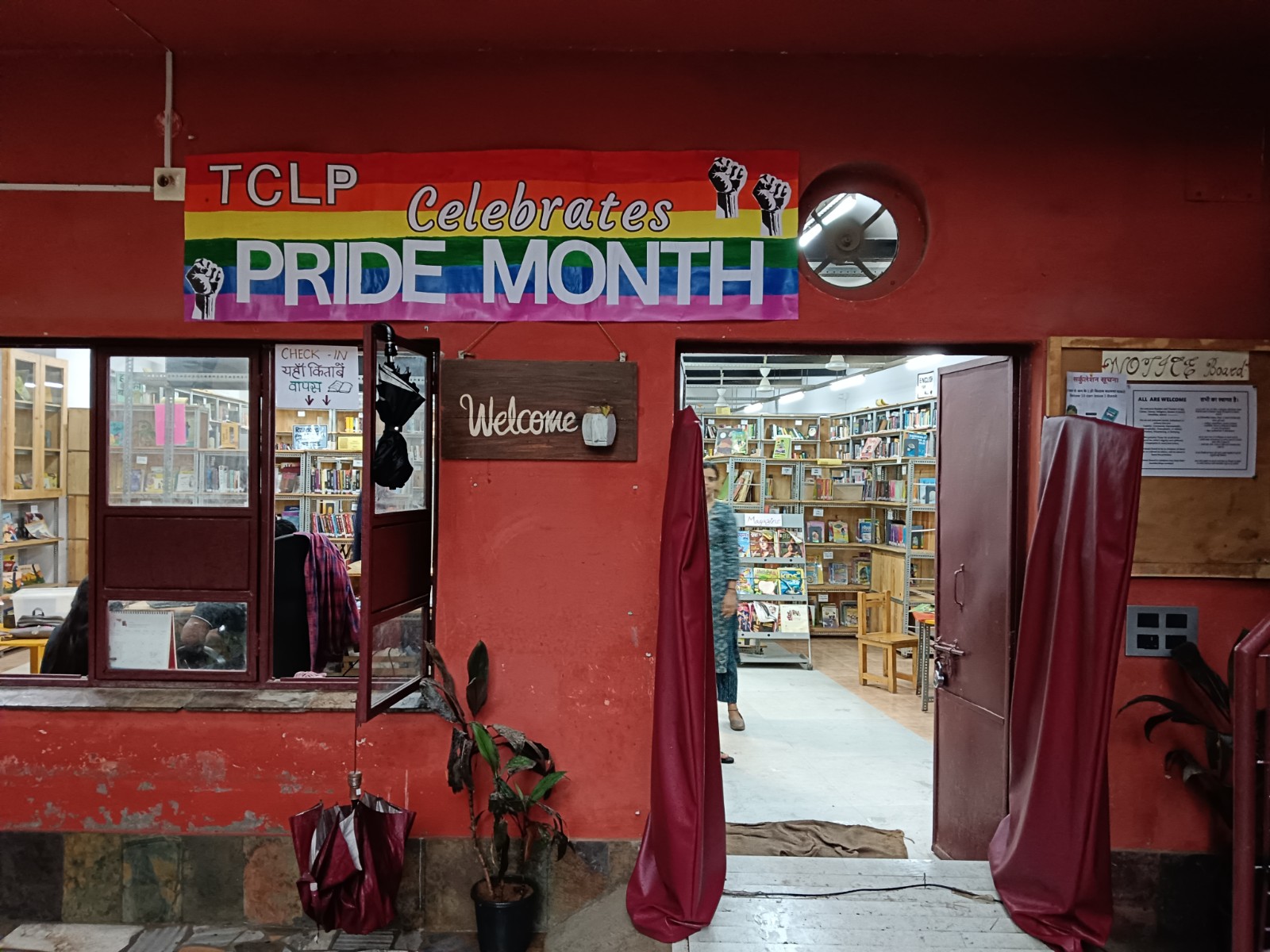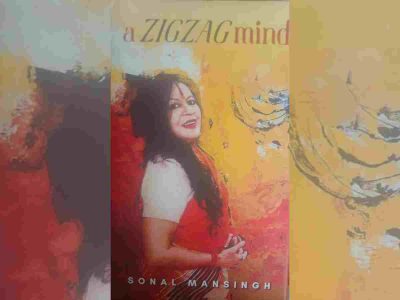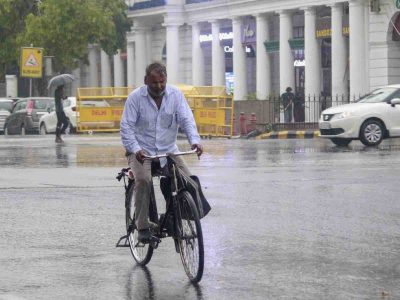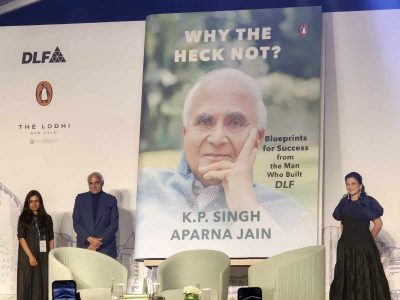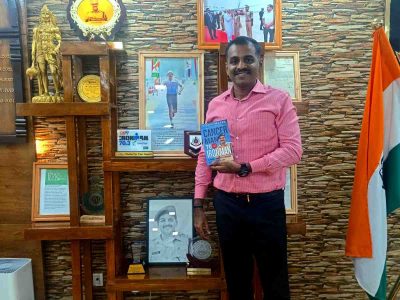As one enters the premises of The Community Library Project (TCLP)’s Khirkee location, one is welcomed by a poster that announces “TCLP Celebrates Pride Month”, just above its entrance.
Upon entering the library, an illustration of Savitribai Phule and the walls adorned with cardboards carrying colourful stars capture the attention.
“Whenever a library member finishes 10 books, we put a star against their name. It is a celebration of reading,” says Mohammad Amaan, the librarian.
The cardboard chart has multiple stars against each name, reflecting the numbers of books members have read.
“This is a space of collective reading and thinking, and this is how we celebrate – collectively,” he smiles.
Launched by writer and community organiser Mridula Koshy in 2014, TCLP is an initiative that believes in “Reading Is Thinking” and particularly targets communities that have historically been left out, creating a space where people from marginalised backgrounds can enjoy the act of reading, especially around subjects that they may otherwise not come across in their school textbooks.
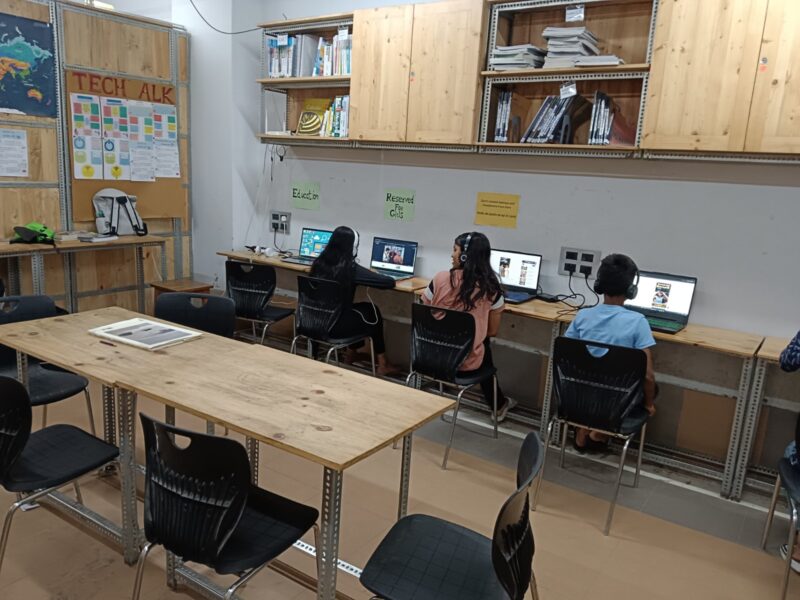
Mridula believes that free libraries allow people to live meaningfully in stronger democracies. “When libraries are free and open to all, they not only widen people’s access to information and thus make it possible for people to contribute and live more meaningfully, but they also increase people’s equality with one another, which in turn strengthens democracy,” she says.
TCLP runs three community libraries in the National Capital Region – at Khirki Village, South Extension, and Sikanderpur.
The library at Khirkee location is bustling with activities.
Some children are reading books with a librarian, some are browsing the bookshelves, while others are resigned to a corner and just observing the place. In the digital section, which is the only place that is silent, children are accessing digital resources on laptops.
“We ensure that the members utilise the digital resources that they may not have access to in their homes. It’s not solely for educational purposes, but they can do whatever they want. They can listen to songs, watch movies,” says Shiven Kumar, a senior member of the library.
There are two laptops slotted only for girls, and one laptop is strictly for educational purposes.
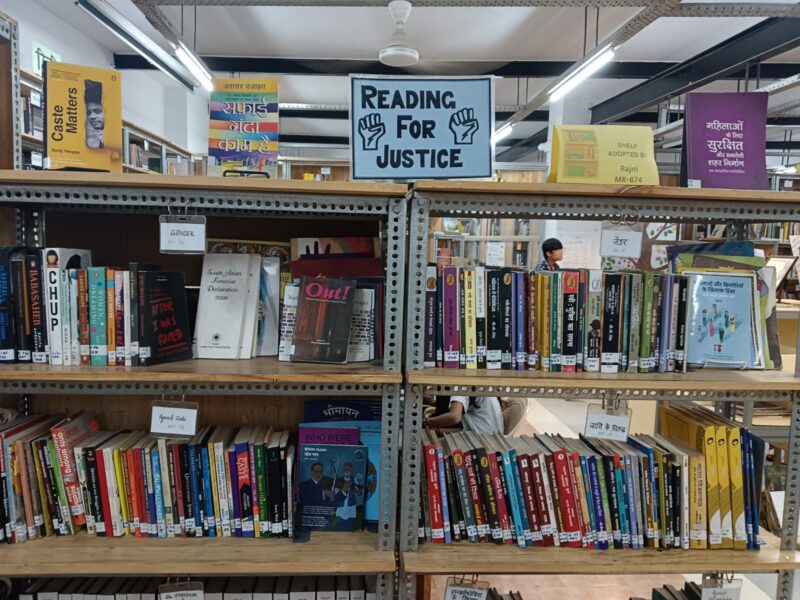
The libraries are free of cost and anybody can pick up a book, sit in the library, and read. For membership, it does not charge any fees or require any documents.
The admission forms are divided into two: for children in the age group of 4-18 years and for those above 18. Many of the members in the library come from working-class backgrounds who are first-generation learners, members inform.
The bookshelves are divided meticulously into sections. They largely have two categories: children and adults. Both the categories have anti-caste literature, LGBTQ+ literature, and books against Islamophobia.
“Those who experience oppression as a result of the hierarchical division of people along the lines of gender, religion, class, ability and caste are painfully aware of the need for answers to questions about their life and experience. Our library, like excellent libraries everywhere, provides access to books to address curiosity and answer questions about what people feel a compelling need to know,” Mridula says.
“One of the most important bookshelves that speak of our vision and our politics is Read For Justice. Here, we try to be as inclusive as we can and the section contains subjects that are often overlooked,” Amaan says as he browses the section.
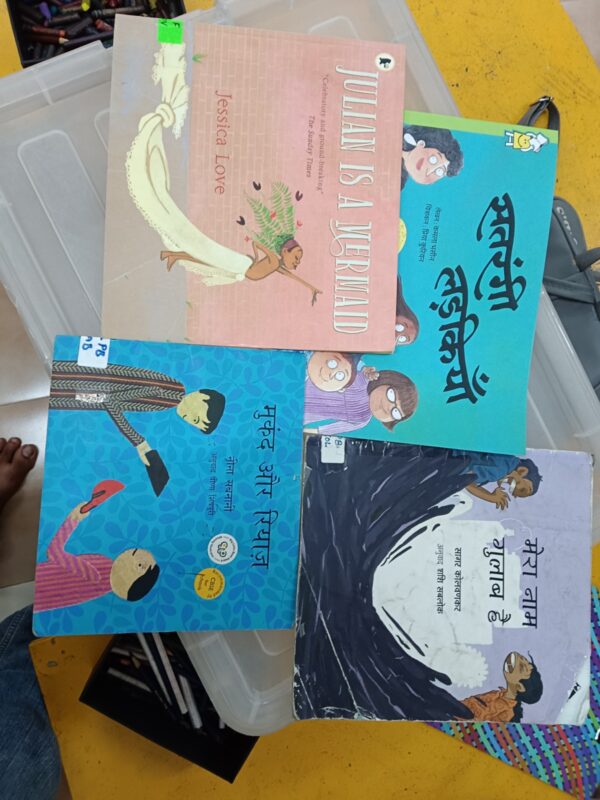
He is not happy with the ending of Mera Naam Gulab Hai, a children’s book about a girl whose father is a manual scavenger by Sagar Kolwanker.
In his read-aloud sessions, Amaan asks the children about alternative endings of the book they can think of.
“I love this activity. There are so many different ways children think that it just makes you wonder. I personally don’t like the ending myself,” Amaan says passionately.
The read-aloud sessions, which take place every day, are meant to create “conversations” around books, and encourage children to speak about their opinions.
“A lot of the time, you may not like a book for many reasons. I think it is important to create an environment where you can say it and not be apologetic about it,” says Amaan.
The other reason for read-aloud sessions and discussions around books is to create a sense of community.
“Reading is often seen as an elitist practice that should be done in isolation. It may be true for someone who is generationally privileged. But for someone who has historically been excluded from books, reading in groups and discussing it gives them a sense of empowerment and belonging,” Amaan says.
While the adult sections contain books such as Christopher Jaffrelot’s Modi’s India, Anand Teltumbde’s Republic of Caste, books on South Asian feminism, and a collection of writings by BR Ambedkar, the children’s section has books such as Satrangi Ladkiyan by Kamla Bhasin, illustrated stories by Maheshweta Devi and Munshi Premchand, along with many titles on gender, caste, and Islamophobia.
The Boy Who Asked Why, a book on the life of Ambedkar by Sowmya Rajendran, is a favourite for read-aloud sessions. In the Read With Pride section, there are books around gender and body. Julian Is A Mermaid by Jessica Love is a book about a boy who wants to be a mermaid and participate in a competition. The Unboy Boy, another children’s book in the collection by Richa Jha, is about a boy who is thought of as “not boy enough”.
“I have observed that children do understand these concepts. When the book talks about caste, gender, or any kind of injustice, they understand all of it. They see how their identities have been portrayed, and they are ready to discuss it. We (adults) may think that they don’t, but they do,” Amaan says.
Sir Ka Salan by Mohammad Khadeer Babu, placed in the children’s collection against Islamophobia, opens with a striking sentence “Mere abba baghair maans ke khaana nahin kha sakte (My father cannot eat a meal without meat)”.
The library has established close collaboration with publishers, enabling it to acquire titles at prices lower than the market price. Individuals can also donate their books to the library.
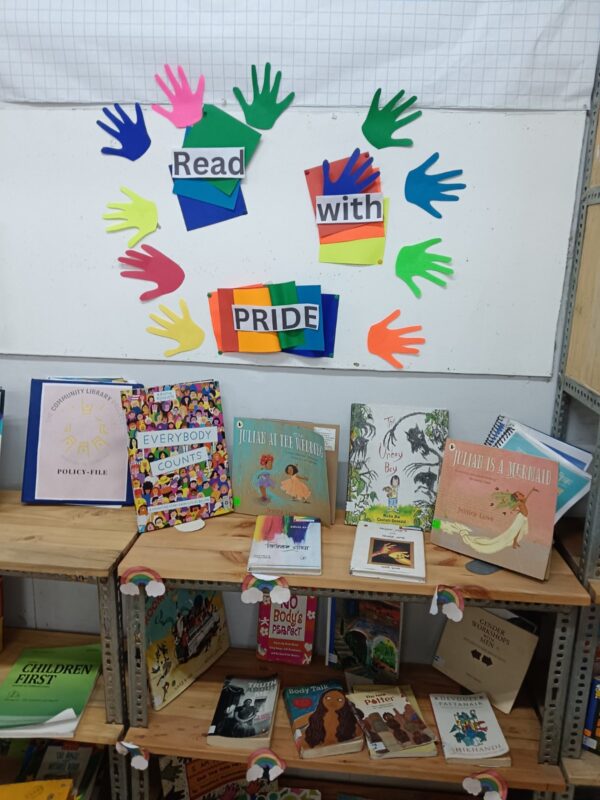
“There are various ways we obtain books. It is more like a community-run organisation,” informs Shivek. As of 2022, the total circulation of books at Khirkee was 13, 461 with 1,197 read-aloud sessions and 557 new admissions.
Several outreach programmes are also being held on a weekly basis. Members of the libraries often take “community walks” in neighbourhoods to encourage people, especially those who come from working-class backgrounds, to participate in the library and reading programmes.
“This is not just to create awareness. One aspect of such walks is to identify the barriers that kids may face in accessing a library, any library in the city, and to work on these barriers so that we can have a more equal inclusive approach towards reading,” Amaan says.

